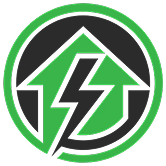
Complete Solar Systems vs. DIY Solar Setup: Which Is Better for Your Home?
Introduction
Switching to solar power is one of the best ways to cut electricity costs and reduce your carbon footprint. But one key decision homeowners face is whether to buy a complete solar system or attempt a DIY solar setup by sourcing individual components.
At Build The Power, we offer turnkey Complete Solar Systems that include everything you need to start generating power — as well as components for those who prefer to build their own.
What is a Complete Solar System?
A complete solar system is a pre-packaged kit that includes all major components:
-
Solar panels
-
Inverter
-
Charge controller
-
Battery storage
-
Mounting hardware and cables
These systems are designed for quick installation and guaranteed compatibility.
👉 Explore our Complete Solar Systems.
What is a DIY Solar Setup?
A DIY solar setup involves buying individual components and assembling the system yourself. This approach offers more customization but requires deeper technical knowledge and careful planning.
👉 Browse our Solar Panels, Power Inverters, and Battery Storage to build your own.
Comparison Table
| Feature | Complete Solar System | DIY Solar Setup |
|---|---|---|
| Ease of Installation | Pre-configured and ready to install | Requires design, sourcing, and assembly |
| Compatibility | All components pre-matched | Must ensure voltage/current compatibility |
| Time Required | Quick setup | Time-consuming |
| Cost | Higher upfront but fewer mistakes | Lower upfront but risk of errors |
| Support & Warranty | Single source for warranty and support | Multiple manufacturers |
| Customization | Limited options | Fully customizable |
Pros & Cons
Complete Solar Systems
Pros:
-
Hassle-free installation.
-
Guaranteed component compatibility.
-
Single warranty and support source.
-
Faster return on investment.
Cons:
-
Less customization.
👉 Explore Complete Solar Systems.
DIY Solar Setup
Pros:
-
Complete control over components.
-
Potentially lower upfront cost.
-
Flexibility to expand or upgrade over time.
Cons:
-
Requires technical expertise.
-
Risk of mismatched components.
-
No unified warranty.
Which Should You Choose?
-
For Simplicity & Peace of Mind: Choose a Complete Solar System.
-
For Full Customization & Hands-On Projects: Go with a DIY Solar Setup by sourcing components individually.
-
For Best of Both Worlds: Start with a complete kit and expand with additional components over time.
Conclusion & Call to Action
Whether you want a turnkey solution or enjoy the challenge of building your own system, Build The Power has everything you need for a successful solar installation.
👉 Explore now: Shop Complete Solar Systems

